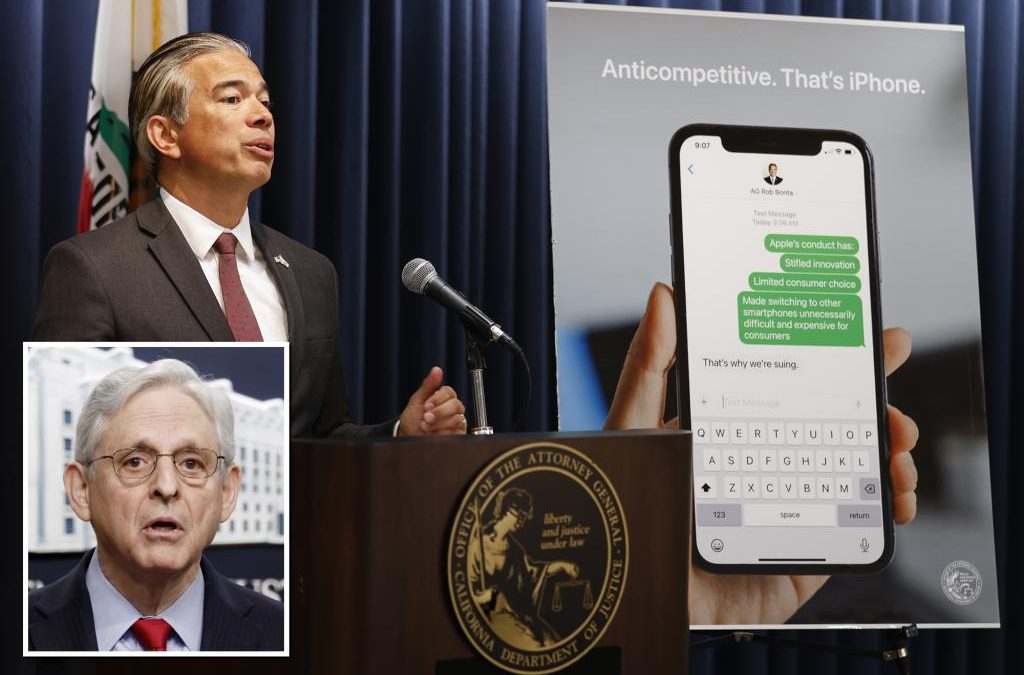The Justice Department called out Apple for afflicting Android smartphone users with the dreaded “green bubble” in text messages — calling it a mark of “social stigma, exclusion and blame” as part of its landmark antitrust case against the iPhone maker.
“Green bubble” status has long been a source of mockery online, with some women even jokingly declaring that they find men who own Androids less attractive. In the past, Apple rivals like Google have demanded that the company “fix” texting.
“Many non-iPhone users also experience social stigma, exclusion, and blame for ‘breaking’ chats where other participants own iPhones,” the lawsuit claimed, adding that the effect is “particularly powerful for certain demographics, like teenagers.”
The notorious issue was heavily featured in the antitrust complaint filed by the DOJ and 16 state attorneys general in New Jersey federal court. Attorney General Merrick Garland said Apple undermines rivals by having texts from Androids to iPhones suffer from “limited functionality.”
Android users can’t see typing indicators, experience poor video quality and have non-encrypted messages when texting with iPhone users. Additionally, Apple has stifled rival apps that could have fixed the problem, the DOJ alleged.
The lawsuit highlighted one notable exchange from Vox Media’s Code Conference in 2022, when an attendee asked Tim Cook to fix Android-to-iPhone texting because they couldn’t “send my mom certain videos.”
“Buy your mom an iPhone,” Cook replied.
“This social pressure reinforces switching costs and drives users to continue buying iPhones—solidifying Apple’s smartphone dominance not because Apple has made its smartphone better, but because it has made communicating with other smartphones worse,” the suit added.
Apple shares fell more than 4% on Thursday after the DOJ announced its lawsuit. The plunge erased the equivalent of $113 billion from Apple’s valuation in a single trading day, according to Bloomberg. The company’s stock is down about 11% since the start of the year.
The feds say Apple has relied on illegal anticompetitive tactics to ensure the dominance of its iPhone. The monopolistic behavior has allegedly resulted in high prices and fewer choices for consumers.
The company controls more than 70% of the performance smartphone market by revenue, according to the lawsuit.
Apple said the “lawsuit threatens who we are and the principles that set Apple products apart in fiercely competitive markets” and vowed to challenge the assertations.
“If successful, it would hinder our ability to create the kind of technology people expect from Apple —where hardware, software, and services intersect,” the company said in a statement.
“It would also set a dangerous precedent, empowering government to take a heavy hand in designing people’s technology. We believe this lawsuit is wrong on the facts and the law, and we will vigorously defend against it.”
Source




